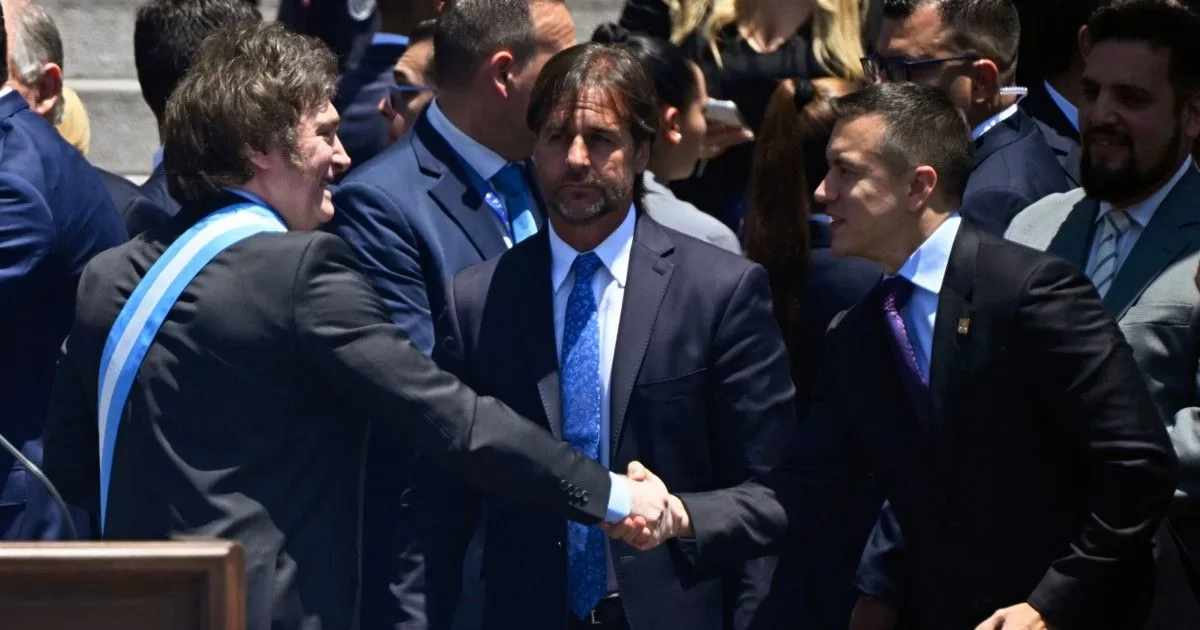“Democracy is recovering and today we see a decline in 21st century socialism, which 10 years ago controlled the entire region,” says political scientist Carlos Sánchez Berzaín, director of the Interamerican Institute for Democracy, based in Miami, in an interview with DIARIO LAS AMERICAS.
Paraguay, Guatemala, Argentina and Ecuador – which brought forward the general elections due to the cross-death decree – chose their new presidents in 2023, in the midst of uncertain elections, marred by acts of corruption and government mismanagement.
Each of these nations, according to Sánchez Berzaín, comply with the essential elements established in the Inter-American Democratic Charter, approved on September 11, 2011. Among them, respect for human rights and fundamental freedoms, access to power and its exercise subject to the rule of law, free political organization, separation and independence of public powers; and the holding of free, fair and clean elections, based on universal suffrage as an expression of popular sovereignty.
Minority governments
In this scenario, on April 30, the Paraguayans They elected the 44-year-old economist, Santiago Peña, at the electoral pollsof the Colorado Party, as its new ruler, maintaining its right-wing tendency, despite the internal divisions of its political organization and accusations of corruption against its main leaders.
In Guatemala, the social democrat Bernardo Arévalo, 64, won the runoff on August 20, a result that the Guatemalan Prosecutor’s Office recently described as “null” due to alleged irregularities in the first round. These assertions were refuted by the Electoral Tribunal, which affirms that the totalization of the votes is “unalterable.”
In the opinion of the analyst, the “critical” election in Guatemala, in which there are still doubts about whether the president will assume power on next January 14is a consequence of the “crisis of the presidential system”, under the second round scheme, which generates “weak minority governments”.
“The governments that are in force at this moment in Latin America, almost without exception, are minority governments and, therefore, they have a number of internal conflicts that prevent them from having governability and that lead them down the path of bad government,” he specifies.
Repudiation of socialism
On October 15, the 36-year-old businessman, Daniel Noboa, became the youngest president in the history of Ecuador, by defeating Luisa González, 45, the leader of former president Rafael Correa, main ally of Ecuador, at the electoral polls. the dictatorships of socialism of the 21st century, led by Cuba and Venezuela.
“It is a very important result, where even after 21st century socialism assassinates the favorite opposition candidate, Fernando Villavicencio, they cannot take power because the repudiation is much greater than the support they can claim or concentrate”says Sánchez Berzaín.
The Ecuadorian elections took place in an extraordinary scenario, given the decree of crossed death invoked by former president Guillermo Lasso, and took place in a campaign marked by the assassination of the presidential candidate Fernando Villavicencio and four other political leaders, including the mayor of Manta, Agustín Intriago , in the midst of the drug trafficking and crime crisis that is plaguing the South American country.
In Argentina, for its part, the libertarian Javier Milei snatched the presidency from Kirchnerism on November 19, similar to the Castro-Chavist dictatorships. In the opinion of the political scientist, this is an “extraordinary phenomenon”, in which the “irruption of a libertarian” occurs in Latin America, as a reaction of a “distressed people, who have been driven to extreme levels of poverty.”
It is a population that “wants change and trusts that change can come from the hand of this man who is absolutely anti-statist, who believes in economic and individual freedom,” he adds.
Free fall and no options
Before Hugo Chávez came to power in 1999, Latin America had only one dictatorship in the region: that of Cuba, who was going through an agonizing moment. With Venezuelan money and oil, Sánchez Berzaín indicates, the Cuban dictatorship expanded in Venezuela and other countries in the region, beginning the “Bolivarian populism” and later socialism of the 21st century.
Currently, the analyst continues, 21st century socialism has significantly lost strength. Today they only operate as dictatorships, apart from Cuba and Venezuela, in two more countries: Bolivia and Nicaragua. These regimes have allies, in what the analyst describes as “paradictatorial governments”in Brazil, with Luiz Inácio Lula da Silva; in Colombia, with Gustavo Petro; in Chile, with Gabriel Boric; and in Mexicowith Manuel Andrés López Obrador.
“Compared to 10 years ago it is a dropbecause 21st century socialism 10 years ago controlled all of Latin America and, in addition, controlled the Organization of American States, had a good economic moment and was an interlocutor with the democracies of the world. Today they are in decline and 2023 proves it”, he points out.
He states that The dictatorships of Cuba, Venezuela, Bolivia and Nicaragua are dying due to the “terminal economic crises” faced by the first two, which today compete for the first places of misery in the world, and the poor economy of the remaining two.
Added to this is the popular repudiation, which today exceeds 80% in each of them, the loss of narrative and the lack of options. “In a scenario in which they have no economy, no people and no narrative, there is no one to save them. Another Chávez is not going to appear and give them an entire country to the Cubans so that they disgrace the country,” he maintains.
In this sense, the analyst considers that in 2023 there were important advances, in which democracy was recovering ground, demonstrating that 2024 “has to be better”, with an agenda that proposes the liberation of the Cuban people.
“We have to start talking seriously to end the Cuban dictatorship. Not violently, but democratically. It must be made very clear that Freedom, security and democracy in the Americas depends on the liberation of the Cuban people.”, he emphasizes.
@ebritop22

